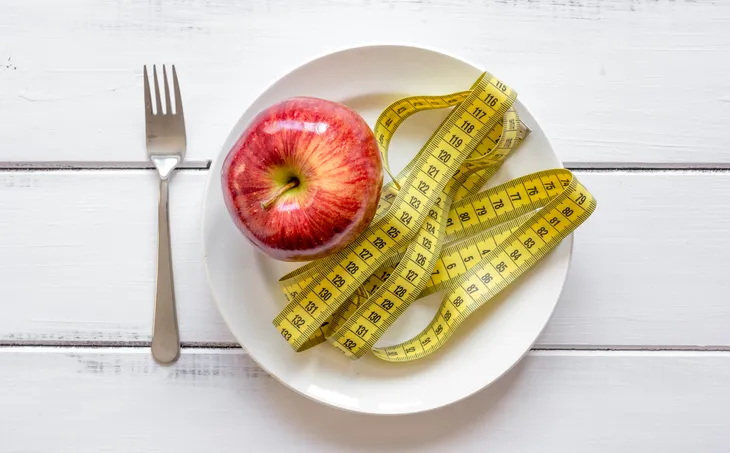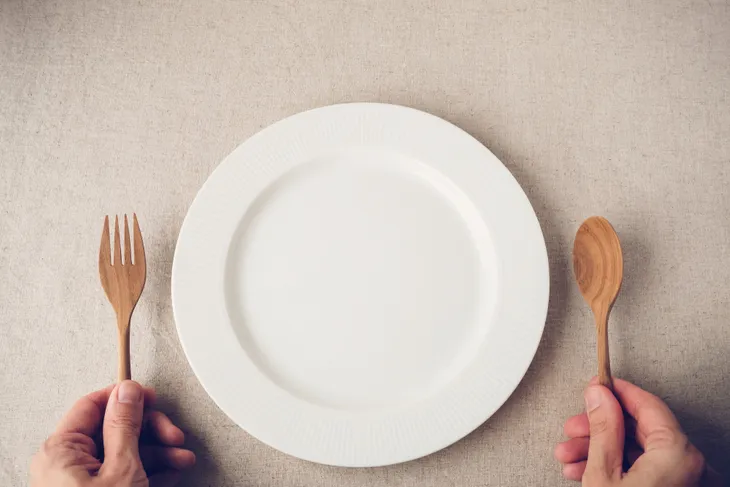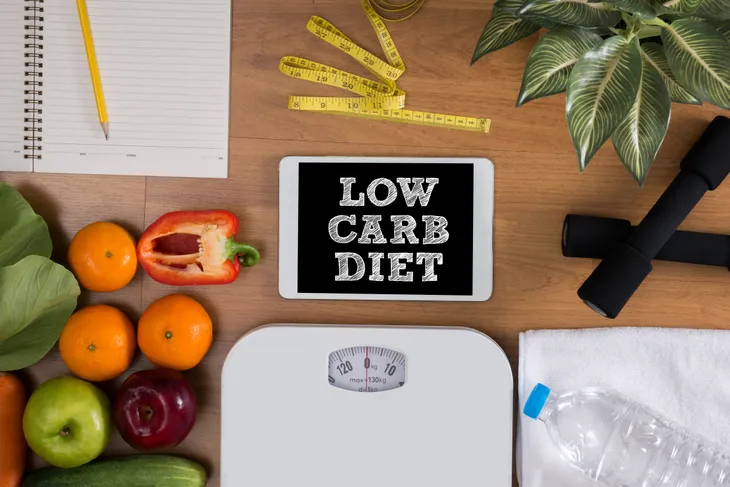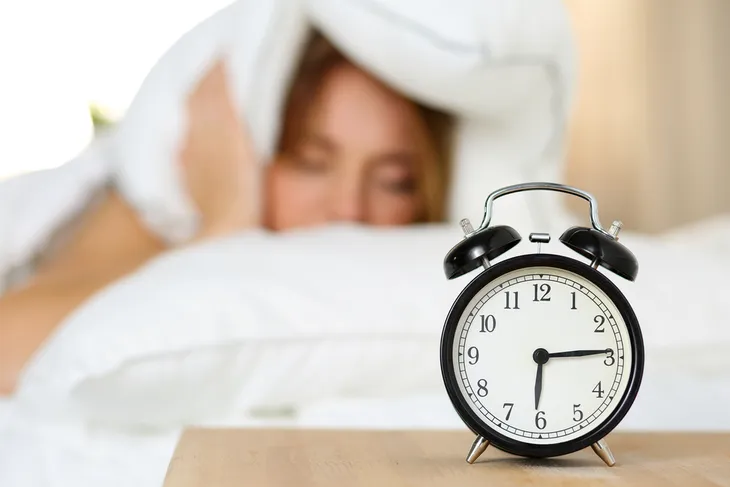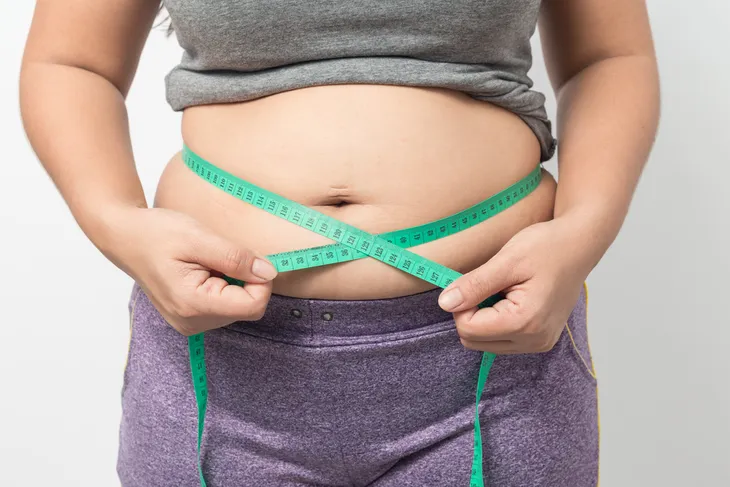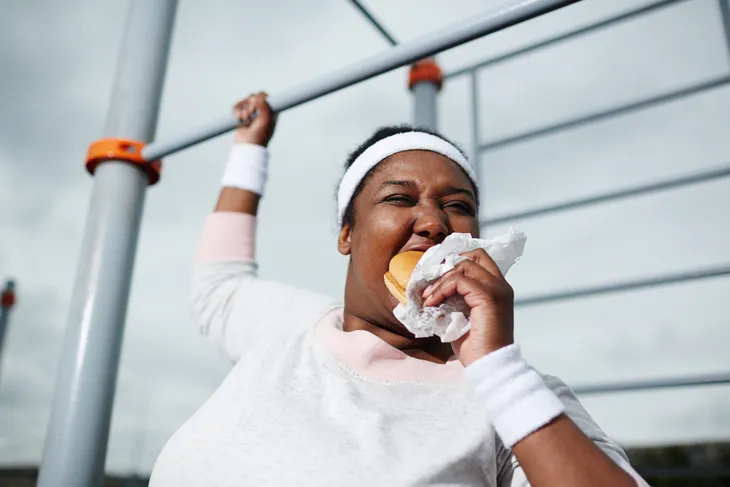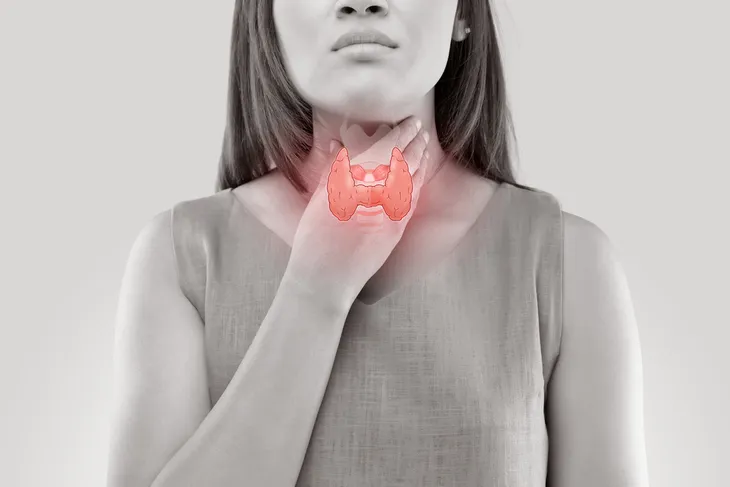Trying to lose weight can be daunting, and at times you might feel like it’s impossible. Sticking to a healthy diet and regular exercise is a big step in the right direction, but sometimes the weight just won’t come off. Before you give up, you should consider there may be a reason you aren’t shedding the pounds. There are common reasons you might not be losing weight—and ways to overcome these issues or address them. Your bathroom scale is not your enemy, so don’t give up yet.
Here are 18 reasons you might not be losing weight…
You Don’t Have Enough Muscle
Muscle is integral in weight loss. Cardio is great for your heart and can help with weight loss, but if that’s all you’re doing, you won’t be dropping as much weight as you could. The more muscle you have, the faster you burn calories.
Developing your muscles will lead to your body burning calories even after you stop exercising. The more muscles you have, the more calories you’ll burn. Now, you don’t need to become the next bodybuilder to see these benefits. Even light resistance training will give you muscle without the bulk, and the extra weight will come off easier.
You’re Eating Too Little
While you might think that eating less will help you shed the pounds, it can actually do the opposite or keep you from losing weight. Portion size is important; if you’re working out, you’ll actually need more food to help sustain your muscle growth and what you burn off through cardio.
To lose weight, you need to burn more calories than you’re eating, but eating too little can slow down your metabolism. A low metabolism will slow down your weight loss. It can also make you feel tired and zap the energy you need to exercise. So eat a well balanced, portion controlled diet to help stay energized and healthy while shedding pounds.
You’re Not Drinking Enough Water
Drinking water won’t make you lose weight, but it will aid weight loss for several reasons. Drinking water helps with portion control because a lot of times when you think you’re hungry, you’re actually thirsty, and water before meals will help you feel full faster.
Staying hydrated with water means you aren’t guzzling high-sugar drinks or even diet soda, neither of which have much, if any, nutritional value. And yet another reason to drink water is that your body needs to flush out toxins and water is key to doing so.
You’re Leaving Out Important Food Groups
It’s easy to fall prey to carb-free diets and low-fat foods when you’re trying to lose weight. It may seem like a good idea to cut out all carbohydrates and most fats, but it isn’t necessary and may actually cause nutritional deficiencies. There’s also health benefits for certain kinds of fats (i.e., the healthy fats you find in almonds, avocados, and salmon) and contrary to popular belief, not all carbohydrates are bad.
Whole grains contain fiber, resulting in feeling full for longer, it isn’t the carbs that are the problem— it’s usually starchy refined, white carbs and portion sizes that are troublesome. So don’t skip out on healthy fats and yummy carbohydrates when there are benefits to eating both.
You’re Skipping Breakfast
You’ve heard this your whole life – breakfast is the most important meal of the day. After a good night’s sleep, your body needs sustenance to give you energy. What you eat in the morning will kick start your day and impact how much you snack throughout the day.
A breakfast with fiber and if possible, protein, will keep you full for longer and get your metabolism revved up. The alternative of skipping breakfast will trick your body into thinking its starving and will cause you to retain fat when your metabolism slows down.
You’re Stressed Out
Stress can cause a few issues for you when you’re trying to lose weight. It can make you think you’re hungry when you’re not and lead to emotional binge eating. It can also slow your metabolism down and cause fat to build up in one of the hardest areas to lose weight—your belly.
If you’re trying to lose weight through diet alone, add in regular exercise. Exercising helps reduce stress and produces endorphins that help make you happy. If you’re already exercising and still feel stressed, consider doing stress-reducing exercises, like yoga or swimming, and make changes to your lifestyle that will help reduce stress.
You Eat Out–A Lot!
Going out for food and drinks with friends and family is fun and is a big part of our social culture. But too many meals at restaurants can hamper your ability to lose weight. You typically eat more when you’re at a restaurant—a series of appetizers, main course, dessert, and drinks—which usually equals way too much food and too many calories.
Plus, a lot of restaurant foods are processed with extra sodium, Trans fats, and chemicals that just aren’t healthy. If going out is something you don’t want to give up or cut back on, stick to ordering food that requires fresh ingredients like salads, and healthy meat options like grilled chicken.
You’re Eating Too Many “Diet” Foods
Diet foods might cut out the sugar, but they often add fat and chemicals back in to make up for taste. A lot of diet foods have low to zero nutritional value, such as diet soda. Light salad dressings are also deceiving–just check the ingredient list!
You’ll also find that extra sodium, preservatives, and chemicals are added to the fat-free and diet meals you can buy at your grocery store. Instead, it’s healthier to manage portion sizes and prepare your foods at home using fresh foods as much as possible to ensure you get your recommended daily dose of balanced food groups.
Not Getting Enough Sleep
Not getting enough sleep at night can do more than just make a person tired. It can affect their ability to lose weight by causing them to eat more during the day. Health.com cites a study published in The American Journal of Clinical Nutrition which found that women who slept less than four hours a night were more likely to eat 300 or more calories and 21 more grams of fat the next day. “Not enough shut-eye puts your body into a carb and fat-craving survival mode,” says Michael Breus, PhD, author of The Sleep Doctor’s Diet Plan.
You should aim to get at least 7 ½ hours of sleep each night, but if you find that you’re constantly struggling to wake up in the morning then you might need around 8 or even 9 hours of sleep.
You’re Eating Too Much
This one might seem obvious, but when someone is exercising a lot (presumably to lose weight), they actually tend to eat more. Even though exercise is necessary when it comes to losing weight, eating healthy and less calories is more important. You might even be eating too much and not even realize it. A great way to find out is by keeping a food journal or food diary. Tracking doesn’t have to be about counting calories. It can be for people who are trying to get a certain amount of a certain food type, like protein. “Tracking is also important if you’re trying to reach a certain nutrient goal, such as getting 30-percent of your calories from protein. This can be impossible to achieve if you’re not tracking things properly,” writes Healthline.
Very Well Fit refers to a 2008 study published in JAMA which found that almost 100-percent of the time, participants underestimated the amount of calories they were eating. “For example, when assessing the calorie content of fettuccine Alfredo or chicken fajitas at a restaurant, participants underestimated calories by 463 to 956,” writes the source. That’s a pretty big difference!
Not Exercising Enough
Again, this point might seem obvious but a lot of people don’t exercise enough. It’s true that eating healthy has more of an impact on weight than exercise, but the two go hand in hand. Not only do people not exercise enough, but a lot of the time they’re not doing the right kind of exercise or their exercises regularly enough to make a difference. If this is the case, consult with a trainer to figure out what kind of workout would work best and to get an opinion on whether the routine you’re currently doing is doing anything at all.
A good place to start when it comes to determining whether what you’re already doing is enough is to consider how long and frequent you’re working out. According to Very Well Fit, weight loss experts suggest 60 to 90-minutes of exercise each day. This is the average for low intensity exercise like jogging and walking. For people who do high-intensity training, they can get away with 30-minutes a day.
Being healthy isn’t just about exercising for an hour each day in order to get away with sitting the rest of the day. It’s more of a lifestyle. You can’t undo sitting all day by working out twice as long. Try to be active whenever possible. This means taking the stairs, picking the farthest parking spot, taking breaks from the computer. A person who sits for longer than 8-hours of the day will most certainly have trouble losing weight no matter how much they exercise.
Slow Metabolism
People who have trouble losing weight might blame it on their metabolism and in some cases, it’s true! Not everyone is able to lose weight the same. It’s different for everyone and it’s often based on metabolism. There are many factors that can affect a person’s metabolism like age and gender.
When it comes to age, Very Well Fit writes, “Some estimates show that muscle mass declines about 4-percent each decade from ages 25 to 50, which is important as lean muscle burns more calories than fat.” If a person’s metabolism has slowed down but they haven’t changed their eating habits, they’ll end up slowly putting on weight.
You’re Eating at Night Time
One of the most common mistakes people make is to eat late at night. This is one of the worst offenses when it comes to weight gain. Eating before bed “may raise body temperature, blood sugar, and [the hormone that regulates glucose in the blood], which makes it harder for you to burn fat,” writes WebMD.
To help with the late night eating or snacking, make a pact with yourself to not eat anything after dinner and not to eat dinner too late in the evening. Try eating dinner at around 6 P.M. or at least three hours before you go to bed. Also, don’t eat in front of the television or computer. This encourages mindless eating which causes people to not only indulge in foods that are unhealthy, but also eat more than they need.
You’re Being Too Impatient
Losing weight can be incredibly frustrating, especially because it requires a lot of work with little reward in the beginning. In some cases the progress is being made, you just can’t see it yet! “Your body may be making changes that a scale simply can’t measure, so hinging the evaluation of your success on how much you weigh can sometimes be discouraging,” writes Very Well Fit. If you find that you’re getting extremely impatient with your weight loss results, the same source advises you to ask yourself the following questions: Are my weight loss goals realistic? Am I seeing any results? Have I given myself enough time to see results? and Am I getting other desirable benefits?
Losing weight isn’t something that happens overnight. Despite what some people want you to believe, there is no magic pill, diet, or workout regime. It’s about making healthy choices over a period of time and turning it into a lifestyle. You need to get exercise regularly, eat healthy, and limit processed foods to a minimum. Results can sometimes take a few months and it’s different for every person. You might get discouraged if you notice someone else getting thinner quicker or by doing less which can be frustrating, but it’s simply because everyone is different. Be patient and stick to it. Consistency is key.
Hit a Plateau
According to Very Well Fit, most people have a weight loss plateau. When we do the same workout over and over, our body adapts to these exercises. “Over time, your body will expend fewer calories performing the same exercise,” writes the source. Once this happens, weight loss will slow down and might even eventually stop. It can be hard to know what to do at the gym, so we end up doing the same thing over and over again, but this isn’t helpful when it comes to weight loss.
Some of the most common reasons behind a weight loss plateau are, as we just mentioned, not changing a workout routine. “Your body needs to be challenged to progress, so make sure you’re changing up your program every four to six weeks,” explains Very Well Fit. It could be that you’re not eating enough calories, so the body doesn’t have enough fuel to sustain the level of activity. If so, the body conserves calories instead of burning them. Lastly, it could be due to overtraining. Too much exercise can cause the body to “respond by decreasing the number of calories you burn on your rest days.”
Too Many “Cheat Days”
The “cheat day” is what we call the day(s) that we give ourselves a free pass slip back into whatever bad habits we’re trying to lose. This could be not exercising, eating unhealthy, drinking, etc. There are many people who claim that this is what helps them lose weight, but it’s important to remember that everyone’s weight loss journey is different. What works for one person might not work for another. If you’re having trouble losing weight and you give yourself frequent “cheat days” like weekends off, then that’s most likely contributing to the problem.
We understand that it might not be practical (or fun) to give up unhealthy foods entirely, so an indulgence once in a while is okay, but not every weekend or every few days. “Generally speaking, to lose one pound of fat in a week, you would need to cut 500 calories with diet and/or exercise each day. If you do so for five days, then overeat and skip your workout for the next two, it’s akin to taking one step forward and two steps back,” explains Very Well Fit. Instead of getting a total free pass on these cheat days, try picking one treat to enjoy over the weekend.
Medical Condition
Losing weight is a struggle for a lot of people, but it can be even harder for people who suffer from a health problem. If you’re doing everything by the book without any obvious faults, then it could be due to a medical condition. One of the most common signs of hypothyroidism is unintentional weight gain. Other things that could affect weight loss are genes, gender, age, and just a body type.
WebMD also lists a number of medications that could affect a person’s ability to lose weight such as “allergies, birth control, depression, diabetes, epilepsy, high blood pressure, bipolar disorder and schizophrenia.” If this is the case, talk to your doctor to get more answers.
Sit at a Desk All Day
A lot of people spend the majority of their day sitting. This is a huge problem for people who work at a desk for a living which is a fairly common scenario. In general, people spend a lot of time sitting which isn’t good for our health. For obvious reasons, it doesn’t help us shed pounds, but there’s actually been evidence to suggest that even exercising each day can’t undo the damage of sitting for the other hours of the day. Fitness magazine cites a study by the University of Missouri-Columbia which found that “sitting for just a few hours causes your body to stop making a fat-inhibiting enzyme called lipase.” A separate study by the University of Wisconsin-Milwaukee found that getting up and walking every hour for even just two minutes at a time can burn an additional 59 calories each day.


